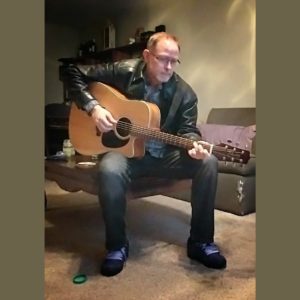I’m happy to announce that I’m appearing at Fan Expo Denver 2022 with friends old and new! I’ll be on five panels, two on Friday evening and three on Sunday. My schedule is below.
Show Off Your Scars (moderator)
Friday, July 1 @ 6pm, Room 710
This panel of pro authors will discuss how they transfer lived experiences to the page, from fights & trauma to the best moments of your life.
- Neo Edmund
- R.R. Virdi
- Courtney Farrell
- Stace Johnson
—- —- —-
Fandom and Format
Friday, July 1 @ 8pm, Room 710
Fans come from all Media. Discuss the intersection and Overlap of Games, Books, Films and Television and their respective fandoms. Fans can come from any Genre and be welcomed into and become a fan of the others. Also, how do fandoms change/grow across generations? Do fandoms need to adapt to new times, or can they still celebrate the original formats? Great Books become Great Films become games and comics and television. How has the explosion of one fandom helped the others grow.
- Kel Kade
- Beyond the Trope Podcast
- Adam Gaffen
- Stace Johnson
- Stephen Graham Jones (who just won the Bram Stoker Award — congratulations, Stephen!)
- Brian Naslund
—- —- —-
Writing a Different Gender
Sunday, July 3 @ 11am, Room 710
If you write, it’s inevitable that you will run into this situation. You identify as female, but have to write a male character. How do you deal with the differences? What sort of research do you do? What are the pitfalls? Do you use a sensitivity editor? How do you respond to criticism? What are some of your triumphs and challenges? From readers, what are some characters who you wouldn’t believe were written by who they were written by?
- Neo Edmund
- Kel Kade
- L.R. Braden
- Adam Gaffen
- Stace Johnson
—- —- —-
Accuracy or Entertainment in Your Writing (moderator)
Sunday, July 3 @ 1pm, Room 710
Does it bother you when a movie, book, or show gets something wrong–a fact, a concept, an idea? Or do you cheer when they make some obscure reference to science or history or culture and get it right? Come join our panel of fiction authors – who also happen to be experts in various fields ranging from programming to history to teaching – as they discuss some of their pop-culture pet peeves, and what they would have done differently. (AND what they think Hollywood or the publsihing insdustry got right!). Come with your own examples, as we attempt to answer the age-old question: what’s more important, accuracy or entertainment? And are they mutually exclusive?
—- —- —-
Writing in a Shared Universe
Sunday, July 3 @ 4pm, Room 710
Writers involved in shared universes discuss what makes it work, avoiding pitfalls, and why shared universes are so much fun.
- David Boop
- Courtney Farrell
- Adam Gaffen
- Stace Johnson
—- —- —-
I’ve also been remiss in announcing my music and writing activities lately, and will be updating those soon, but here’s a sneak peak:
- I recently performed filk music in the Festival of the Living Rooms #14, the Festival of Faerie in Louisville, CO, and at Superstars Writing Seminar in Colorado Springs.
- I published a drabble (100 word short story) in Drabbledark II from Shacklebound books. The story is called “By the Coin”.
- I was invited to participate in a unique flash fiction coloring book project for Kickstarter, and that campaign kicks off in a couple of weeks. I love this project, and am honored to appear in this Mythic Mongoose Press volume alongside James A. Owen and Kevin J. Anderson. I’ll make an announcement here, on my Facebook page, and various other places when the Kickstarter goes live.
- Finally, I sold a story to Knight Writing Press for their upcoming Modern Magic anthology. That book is due out later this year.
There has been a lot going on! More coming soon, but for now, I need to get my butt downtown for FanEx!


